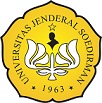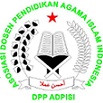Pendekatan Manajemen dalam Pengkajian Islam
Abstract
This paper discussed the concept of management in Islam, definitions, roles, functions, and various matters related to management in Islamic studies. This study is a qualitative and library research. The data has been analized by the descriptive method. The result showed that the purpose of management is the implementation of the entire work program effectively and efficiently. Effective means achieving goals, while efficient in the general sense means saving. So, there are two main objectives with the implementation of management in the completion of work, organization, institutions and institutions. If we examine and understand the contents and meaning contained in the verses of the Quran or the Hadith of the Prophet, also contained in the kitab kuning, there will be many teachings are actually the principles and fundamentals of management. In the history of Islam the first period we know that among the companions of the Prophet there was a person who lay the foundation of the administration of Islamic government, namely Caliph Umar Ibn Khattab. He is considered a genius in laying the foundation of Islamic government. During the Islamic government was an efficient government. Islam views management as a tool that can be used to implement what is in the Koran and Hadith, it is not surprising that management is used as a scientific discipline to approach Islamic studies. The approach then produces a very extraordinary finding, management turns out to be able to provide answers that are both theoretical and practical.
References
Aziz, Fathul Aminudin, ‘Memahami Manajemen Islam melalui Pendekatan Tafsir Metodologis,’ Jurnal El-Jizya: Jurnal Ekonomi Islam, 6.2 (2018).
Bafadal, Ibrahim, Manajemen Peningkatan Mutu Sekolah Dasar dari Sentralisasi Menuju Desentralisasi (Jakarta: Bumi Aksara, 2003).
Baharuddin, dan Moh. Makin, Manajemen Pendidikan Islam: Transformasi Menuju Sekolah/Madrasah Unggul (Malang: UIN Maliki Press, 2010).
Branine, Mohamed and David Pollard, ‘Human resource management with Islamic management principles: A dialectic for a reverse diffusion in management’, Personnel Review, 39.6 (2010), 712-727.
Effendy, Mochtar, Manajemen: Suatu Pendekatan Berdasarkan Ajaran Islam (Jakarta: Bhratara Karya Aksara, 1986).
Fattah, Nanang, Landasan Manajemen Pendidikan (Bandung: Remaja Rosdakarya, 2006).
Hasibuan, Malayu, Manajemen: Dasar, Pengertian dan Masalah (Jakarta: Bumi Aksara, 2006).
Manullang, Dasar-Dasar Manajemen (Yogyakarta: Gadjah Mada University Press, 2005).
Marno, dan Triyo Supriyatno, Manajemen dan Kepemimpinan Pendidikan Islam (Bandung: Refika Aditama, 2008).
Siagian, Sondang P. Teori Pengembangan Organisasi (Jakarta: Bumi Aksara, 2007).
Stoner, Freeman dan Gilbert, Manajemen (Jakarta: Prenhallindo, 1996).
Sudjana, Manajemen Program Pendidikan untuk Pendidikan Nonformal dan Pengembangan Sumber Daya Manusia (Bandung: Falah, 2004).
Suharsaputra, Uhar, Administrasi Pendidikan (Bandung: Refika Aditama, 2010).
Sulistyorini, Manajemen Pendidikan Islam: Konsep, Strategi dan Aplikasi (Yogyakarta: Teras, 2009).
Suwarto, Perilaku Keorganisasian (Yogyakarta: Atmajaya Press, 1999).
Syamsi, Ibnu, Pokok-Pokok Organisasi dan Manajemen (Jakarta: Rineka Cipta, 1994).
Terry, George R., Asas-Asas Manajemen (Bandung: Alumni, 2006).
Tunggal, Amin Widjaja, Manajemen Suatu Pengantar (Jakarta: Rineka Cipta, 2002).
Usman, Husaini, Manajemen: Teori. Praktik, dan Riset Pendidikan (Jakarta: Bumi Aksara, 2011).








